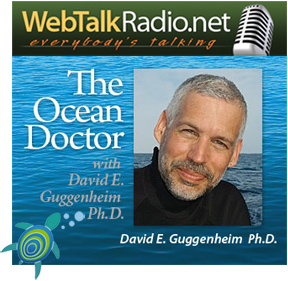Proyecto Costa Noroccidental (Project of the Northwest Coast) — a project of the University of Havana’s Center for Marine Research (Centro de Investigaciones Marinas: CIM) and The Ocean Foundation in Washington, DC — explores the most unknown corner of the Gulf of Mexico: Cuba’s northwest coastal waters. The next leg of the expedition is scheduled to depart Havana on September 5, 2009.
 |
It is often said that those 90 miles of open water south of the Florida Keys — the Straits of Florida — separate Cuba and the USA. Like a hand-drawn blue borderline, the Straits are often invoked as a symbol of the 50-year-old Cold War that has frozen our two countries so tantalizingly close, yet so tragically far apart. But to the sea turtles, sharks, lobster, whales and other sea life, those same 90 miles of blue unite our countries with racing blue currents, unseen underwater pathways, and a web of colorful life that defies the perceptions of so many of the Gulf of Mexico, who know it only as a hot, muddy cauldron that spawns hurricanes and oil platforms.  Cuba’s northwest coast – the verdant Pinar del Río province, home to Cuba’s legendary cigars — is the least-developed coastal region of Cuba. But as Cuba’s tourism trade continues to develop and as Cuba’s fledgling offshore oil development expands into the Gulf, it is hoped that the insights from this joint research will help to guide the hand of such development so that some of Cuba’s most precious assets, its coral reefs, will be spared the fate they have seen elsewhere in the Caribbean.
The majority of Cuba’s reefs are remarkably healthy, a fact made even more striking given that just 90 miles to the north, in the Florida Keys, nearly half the reef system has died. For that reason, and because of its unique history and geography, Cuba may hold important clues for coral reefs elsewhere in the Caribbean and perhaps around the world.
This project is providing the first-ever comprehensive study of Cuba’s northwestern waters and providing research opportunities for Cuba’s next generation of marine scientists — nearly 20 have based their Masters and Ph.D. research on this project.
ExpeditionCam
Note: ExpeditionCam will not be functioning offshore
Recent Location
|
|
The Ocean Doctor’s Recent Location
|
|
|
|
Recent Tracking via SPOT Satellite
|
| [inline]
[script type=”text/javascript” src=”http://maps.google.com/maps?oe=utf-8&file=api&v=2&key=ABQIAAAAr_lKNAGNvTFqa3-NbwOvYRQpJ4lJb9ZX4kFZWgJsJV5sW-WcgBT4slHF2w10mBwMl1X5leTrtBczUg”][/script]
[script type=”text/javascript” src=”http://share.findmespot.com/spot-widget/js/SpotMain.js”][/script]
[script type=”text/javascript”]
var widget = new Spot.Ui.LiveWidget({ renderTo: “spot-live-widget”,
feeds: [ “04Y9dlAAzd88VnDjjTL6uk66aYUoLudJl” ],
height: 400,
width: 500,
mapType: “physical”
});
[/script]
[/inline] |
Note: While offshore, position will be updated via SPOT satellite device
Latest Updates
Note: While offshore, updates will be via SPOT satellite only
Subscribe to ExpeditionDispatch
Subscribe to ExpeditionDispatch

Subscribe to the 1planet1ocean newsletter!
|
Support the Expedition!
| Become an expedition supporter and receive special VIP updates. Just a few dollars will go a long way to understanding and protecting this beautiful jewel of the Caribbean. Your contribution is 100% tax-deductible.
|
| The link above will take you to The Ocean Foundation’s secure donation page.
Important: Under Gift Information, please select “I’d like to make this donation on behalf of” and select “Cuba Marine Research & Conservation Fund” which ensures your donation goes directly to the fund for this project.
|
Become a Corporate Sponsor
Join us as a corporate sponsor, partner or affiliate and receive lasting recognition before a national audience, including prominant display of logos and links on all web sites and printed materials. For more information on corporate sponsorship opportunities, please contact us.
Support Our Sponsors & Affiliates!
Show your support by visiting our sponsors and affiliates.
This page is made possible by Audible
|



 Read any authority’s advice about blogs and you’ll see at the top of the list: “Blog regularly.” Even for someone who enjoys writing as much as I do, I don’t believe in writing for writing’s sake — I like to share original experiences and ideas, not just rehash stale news. Still, I’ve experienced quite a few blog-worthy adventures in the four months since my last post shortly after the Bering Sea Expedition, but haven’t written a single word.
Read any authority’s advice about blogs and you’ll see at the top of the list: “Blog regularly.” Even for someone who enjoys writing as much as I do, I don’t believe in writing for writing’s sake — I like to share original experiences and ideas, not just rehash stale news. Still, I’ve experienced quite a few blog-worthy adventures in the four months since my last post shortly after the Bering Sea Expedition, but haven’t written a single word. 








